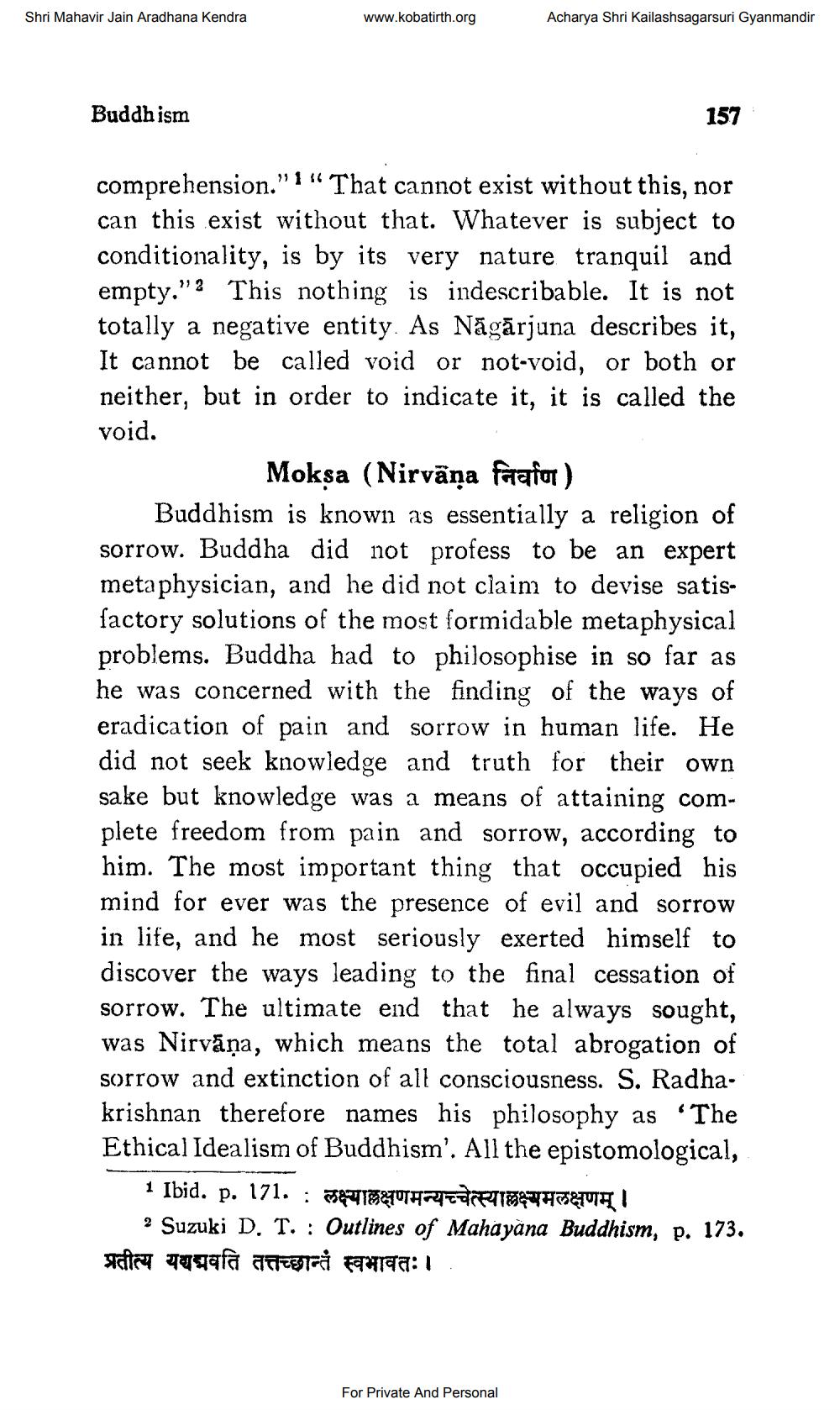________________
Shri Mahavir Jain Aradhana Kendra
www.kobatirth.org
Acharya Shri Kailashsagarsuri Gyanmandir
Buddhism
157
comprehension."1" That cannot exist without this, nor can this exist without that. Whatever is subject to conditionality, is by its very nature tranquil and empty."? This nothing is indescribable. It is not totally a negative entity. As Nāgārjuna describes it, It cannot be called void or not-void, or both or neither, but in order to indicate it, it is called the void.
Moksa (Nirvāṇa fatafo) Buddhism is known as essentially a religion of sorrow. Buddha did not profess to be an expert metaphysician, and he did not claim to devise satisfactory solutions of the most formidable metaphysical problems. Buddha had to philosophise in so far as he was concerned with the finding of the ways of eradication of pain and sorrow in human life. He did not seek knowledge and truth for their own sake but knowledge was a means of attaining complete freedom from pain and sorrow, according to him. The most important thing that occupied his mind for ever was the presence of evil and sorrow in life, and he most seriously exerted himself to discover the ways leading to the final cessation of sorrow. The ultimate end that he always sought, was Nirvāņa, which means the total abrogation of sorrow and extinction of all consciousness. S. Radha. krishnan therefore names his philosophy as “The Ethical Idealism of Buddhism'. All the epistomological,
1 Ibid. p. 171. : TIGHTPAZARTIERTHIETTEI
2 Suzuki D. T. : Outlines of Mahayana Buddhism, p. 173. प्रतीत्य यथप्रवति तत्तच्छान्तं स्वभावतः।
For Private And Personal




